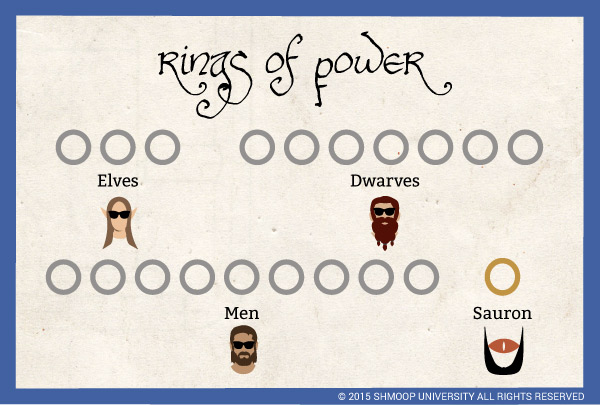It goes without saying that Sauron desires power. Why else would he try to conquer all of Middle-earth? But even if Sauron is a power-hungry maniac (and he definitely is), the interesting thing about him is that he lacks the ability to make new things on his own. There appears to be a limit on Sauron's power even at the start of the War of the Ring. Don't get us wrong. Sauron can certainly still do tons of horrifying damage with the power that he does have. But in The Two Towers, it's clear he'll never truly achieve the kind of god-like domination he seems to crave.

(Click the infographic to download.)
Questions About Power
- What does Saruman hope to achieve by turning to the dark side and to Sauron? What does he use his newfound power to do? What is the difference between Saruman's wizardly power and Gandalf's?
- What's up with Saruman's voice? How does Saruman use the enchanting power of his marvelous voice for his own benefit?
- Treebeard's frequent digressions into naming and the origins of names reminds us of the power of names in Middle-earth. Which characters in The Two Towers have multiple names? Why might they have multiple names? Do their names give them power?
- How does Frodo use the power of the Ring to control Gollum? Are there moral problems to this approach?
Chew on This
Tolkien's negative representation of the stone walls and hot furnaces of Isengard suggests his strong suspicion of the power of industry and its effects on the green things of the world.
When Sam finally realizes that the best part of him is his heart, it shows that he has totally given up any dream of power. You can't deeply love someone, like he does Frodo, and want to control them at the same time. That makes Sam surprisingly qualified for Ring-bearing.